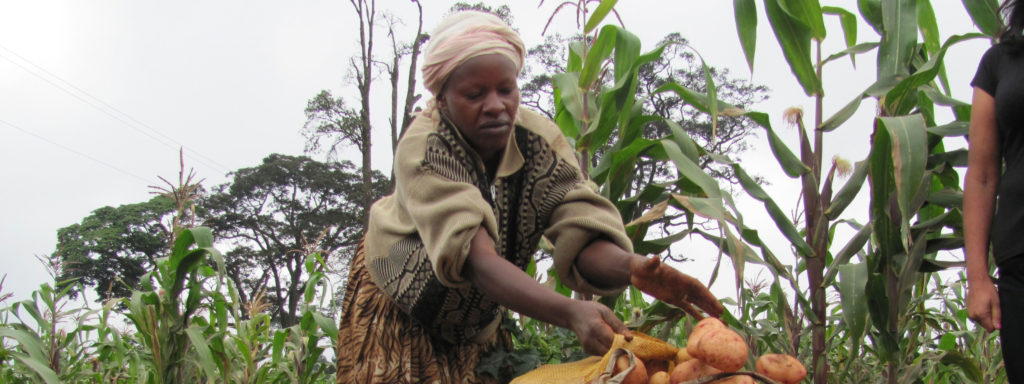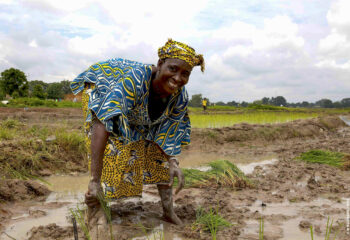
Agrico, a global leader in potato breeding, has developed a range of varieties for different uses, all suited to tropical conditions. 2SCALE clusters are growing eight new high-yielding Agrico varieties, multiplied in the country from seed potatoes imported from the Netherlands. This season, farmers planted more than 300,000 kilograms of Agrico seed potatoes and sold the harvest for higher prices.
But this partnership is not just about new varieties. It includes awareness campaigns, farmer training, improved storage, credit, and linkages with private firms supplying fertilizers, agrochemicals, and farm machinery.
More than 1,200 farmers have been trained on improved production methods. Low-cost planting and harvesting equipment, introduced for the first time in Kenya, is generating huge interest. Low-cost potato storehouses are being scaled out with co-investment by traders and processors. The roll-out was so promising that Irish Aid is now funding a parallel program implemented jointly with 2SCALE.
Seventeen demonstration plots were set up in farmers’ fields and attracted more than 3,000 visitors, who saw for themselves that the new varieties, Markies and Rudolph, can yield up to 30,000 kilograms per hectare, compared to 7,000-10,000 kilograms from traditional varieties. Two other demonstrations, established at a government training center in Nyeri, attracted 25,000 visitors.
In 2015, 2SCALE partner, Sereni Fries, introduced Kenya’s first producer contracts for potatoes and purchased more than 100,000 kilograms, paying 50 percent above the market price. Sereni also introduced a unique loan scheme (facilitated by 2SCALE) in partnership with a microfinance agency. Farmers with Sereni contracts received seeds and fertilizers on credit. Repayments are deducted from farmer payments at harvest.
The Agrico partnership has led to big changes in the potato sector. Before 2SCALE, there were no linkages between small-scale farmers and processors and little appreciation of variety characteristics – most farmers and traders distinguished only between small and large varieties. Now, farmers ask for specific varieties. 2SCALE clusters in Bomet, for example, want Destiny because it is adapted to the local soil type and temperatures, and because processors are willing to pay higher prices for a spud that consumes less oil during frying.




